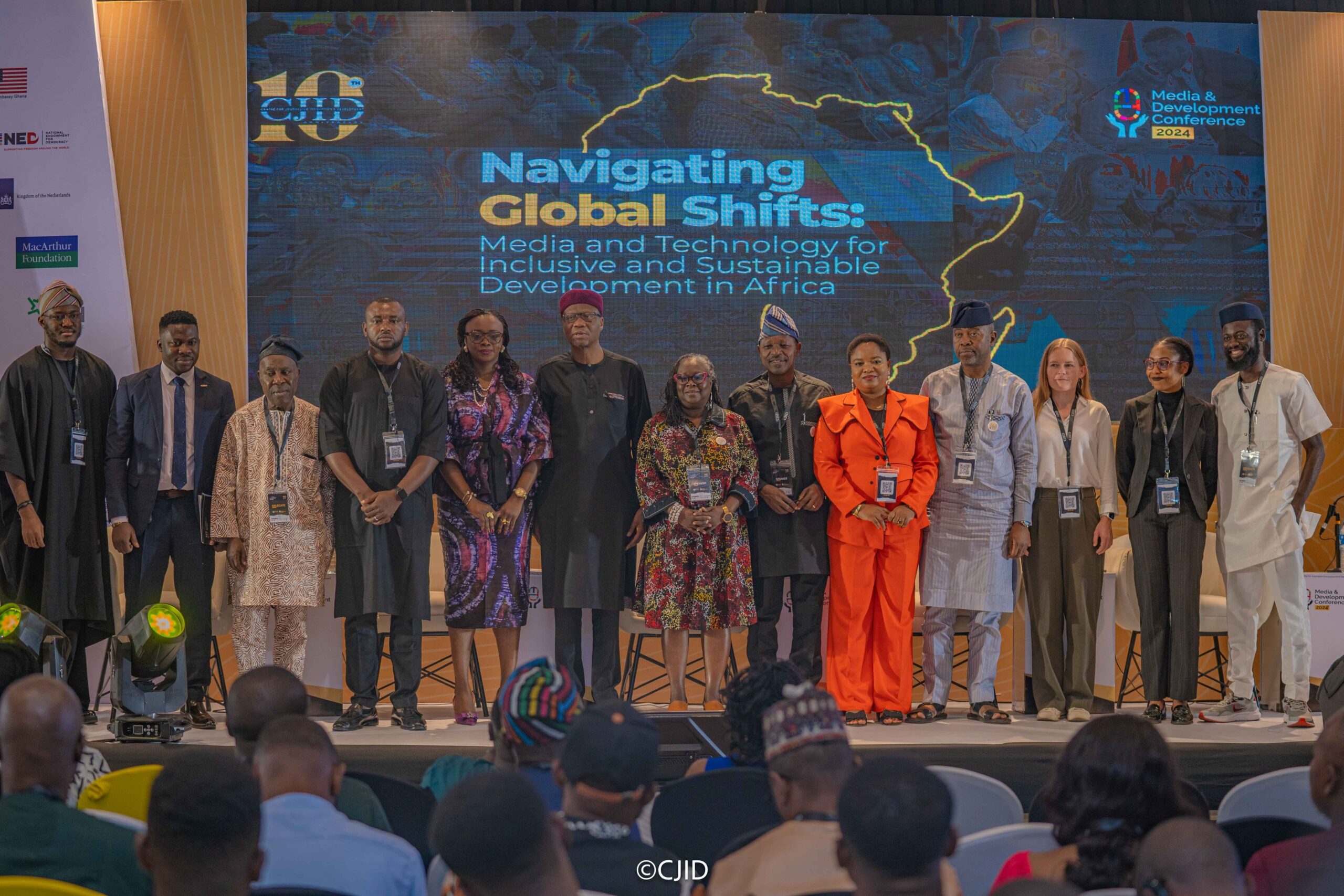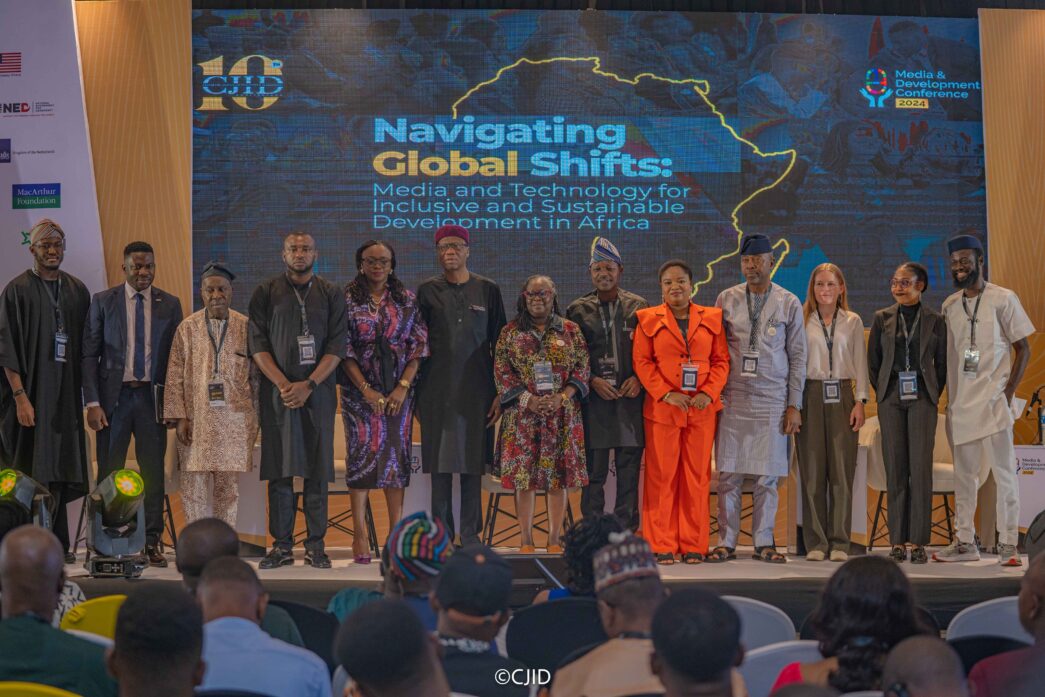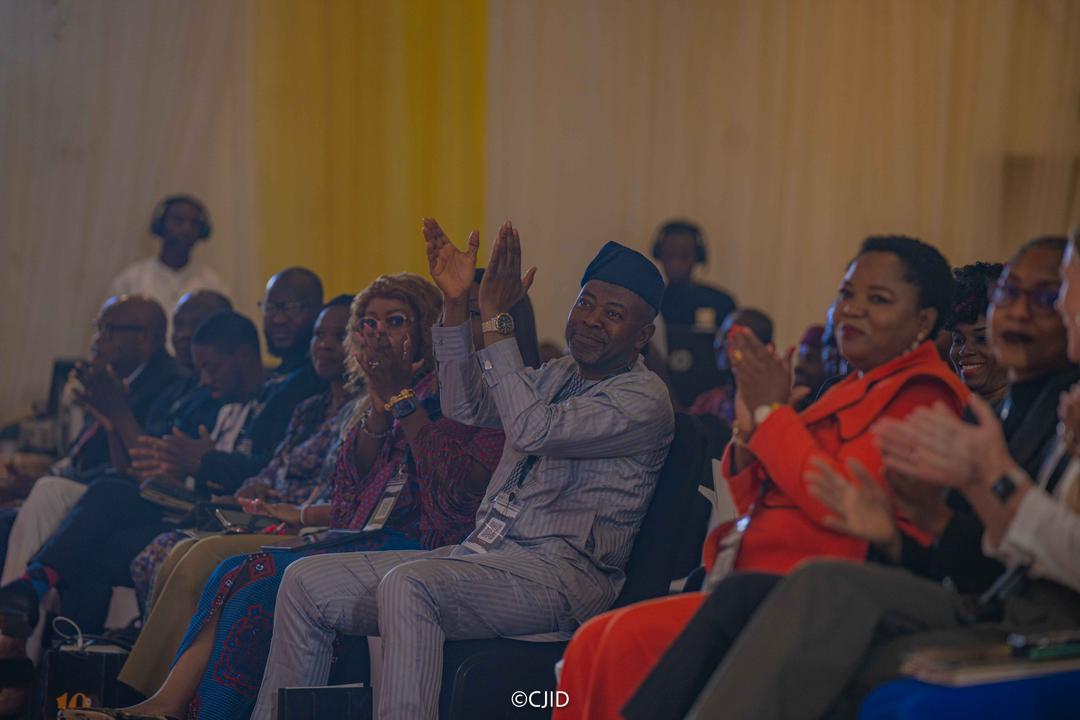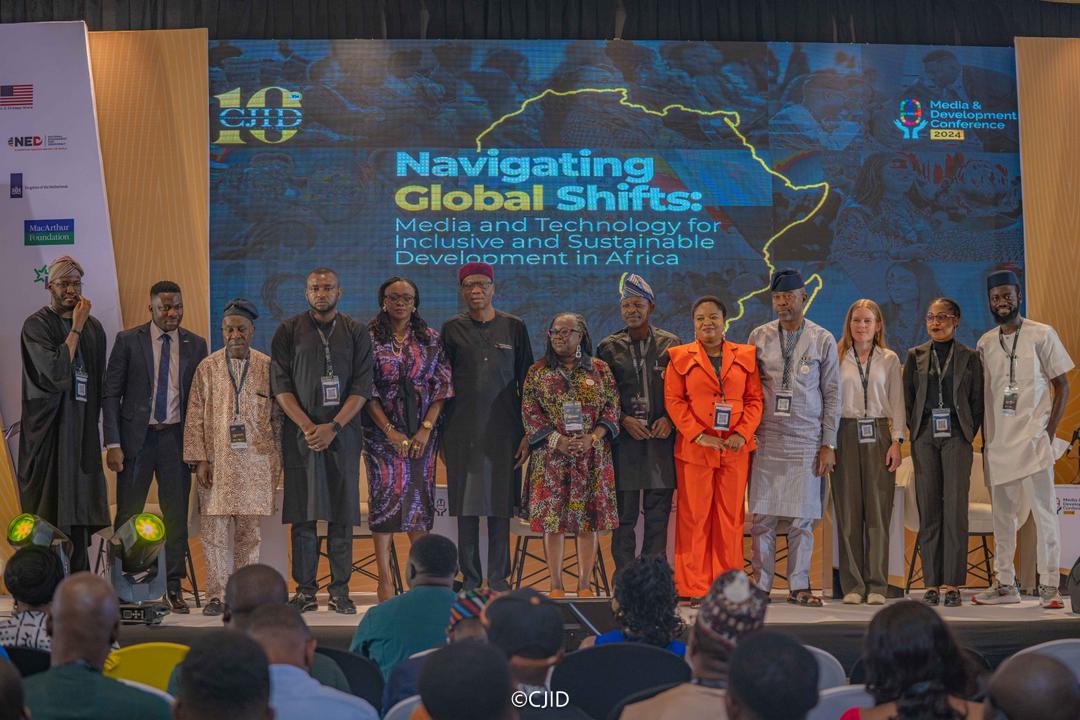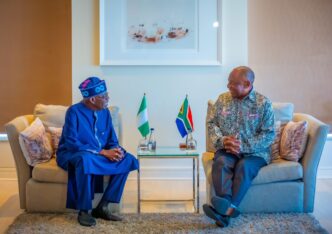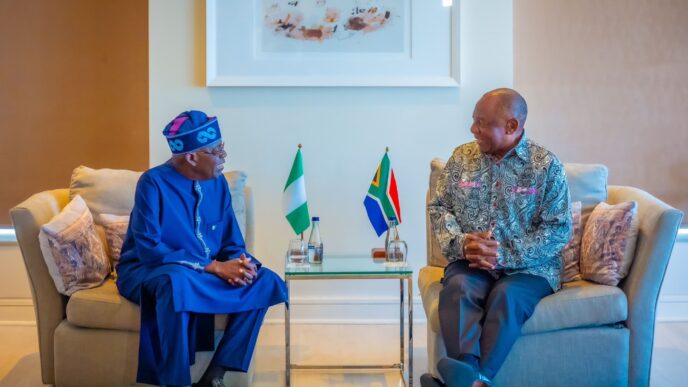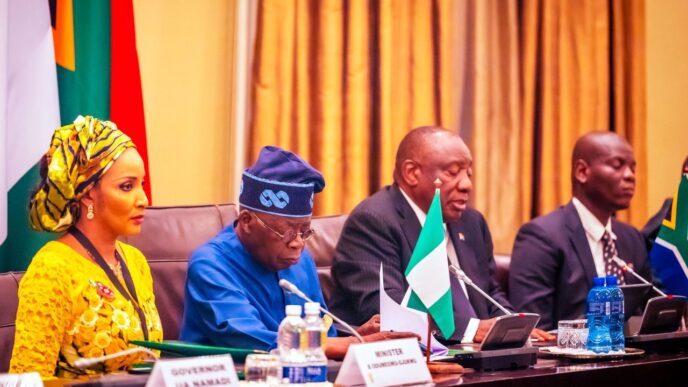At the height of the activities to mark the tenth anniversary of the Centre for Journalism Innovation and Development (CJID), the truism of the reward for hard work being more work was unmistakable. It was an auspicious time to showcase the organisation’s efforts in the development of artificial intelligence (AI) tools.
Thus, some four gangling, promising young men were called forward to formally present the AI tools which were the outcome of months of the work CJID had mobilised them to do as teams of techies, journos and analysts. The AI tools resulting from the collaborations of the four teams represented turned out to be such that would aid access to information by journos and others; ensure inclusivity of the persons with visual and hearing impairment and so forth. It’s the first of any such feat in Africa.
After rounds of applause came the suggestion that it wouldn’t be a bad idea that CJID should consider rousing young talents across universities for rigorous inspiration and attention to work on AI tools development. Without any hesitancy, Director of Programmes Akintunde Babatunde instantly acceded.
Akintunde’s immediate consent reinforced the impression of the Czar of the funding community in Africa, Dr Kole Shettima. In his goodwill message at the opening of the event, he noted with emphasis that CJID was a child already behaving like an adult. Shettima asserted with full conviction that CJID deserved every bit of support and encouragement that everyone interested in the twin entities of media and development could muster. As he spoke, Shettima also led the entire hall in a series of resounding applause for CJID. It was a protracted one that continued till Shettima returned to his seat.
Advertisement
As the CJID’s second edition of the Media and Development Conference cum anniversary proceeded, different shades of different facets of developments across Africa came under focus. Indeed, from as many as seventeen countries of Africa covering media and technology; artificial intelligence, health including infant mortality; environment, mining, and education.
The engagements with the assorted issues were as serious as solutionist clearly beyond romanticism or blame game rituals. On account of their strategic importance, two separate sessions were dedicated to each of media and health alone. For health, one was on Improving Primary Healthcare in Afria’s Underserved Areas while the second was themed Improving Women’s Health Outcomes: Addressing Maternal and Reproductive Health Challenges.
Advertisement
Although it wasn’t the first session, when, on Day 2, it was the turn of the panel for Improving Primary Health Care in Africa, there was an unusual attention focused on the stage. World Bank Senior Health Specialist, Dr Olumide Okunola, lamented that when he heard people of the future belonging to the youths, he was always amazed at the emptiness of our so-called future. “The future is so scary,” he declared, “because the future we keep talking about is like a mirage from the available data on the health of our children”. Okunola could not but volunteer to share a convincing, mega photographic image resulting from typical MRI scanning of the brain of an average Nigerian child.
With the image on display, he explained that as much as 40% of the children population were so unimaginably malnourished that the MRI results of the said 40% have, as could be seen by everyone in the hall, revealed nearly blank brain now responsible for their stunted growth. “It is the reason the experts keep agitating for substantially improved budgetary votes for the health sector, unfortunately, largely ignored by those in government and duly positioned to deploy the right action. With the vacuous brain, not only will growth be inhibited but even basic thinking would be so abysmally low and can hardly signal any wisdom.”
Still on healthcare, Chika Offor, on the same panel, later revealed that the state of our primary healthcare centres was equally significant. “They are run as if they operate zero budget as patients are made to buy everything needed even as governments may have provided for basic needs.” She later noted that indifference to the PHCs by the elite is killing those facilities. “I urge you all to endeavour to adopt, even if for sheer monitoring, the nearest PHC to each one of us. We may wish to do well to support them with some resources and they don’t usually need much. I should quickly tell you that a woman in Abuja here has already adopted one and doing well with it.”
CJID didn’t play God in other facets of development without minding the media’s fate in the face of the bourgeoning sphere of AI. Ensuring balance across both gender and geographical realms, the panel on AI and the Future of the Media: Managing the Intersection of Technology and Democracy featured four discussants. Iconoclastic founder of media and tech organisation, Dataphyte, Joshua Olufemi from Nigeria together with the Head of Investigation of Premium Times of Nigeria, Idris Akinbajo was joined by two women namely Barrister Saadatu Hamu Aliyu and Zara Schroeder. Olufemi spoke on the seemingly limitless possibilities derivable from tech noting that the radicalisation informed by tech on the media was hardly predictable until it began to pan manifest.
Advertisement
“We are in for an amazing era and no one can afford to be a bystander.” With the perspective of South Africa, Schroeder agreed with Olufemi. Akinbajo argued that the incredible productivity of AI across the interlinked triple facets of media production, dissemination as well as consumption across both the print and broadcast genres notwithstanding, the indispensability of the complementarity of the human factor is unmistakably obvious. Akinbajo delightfully revealed how some of the reports of his newspaper had been rendered orally with the podcasting made possible by AI. Noting that the media were in for interesting times he did not fail to rhetorically ask: “But how can anyone think of discounting the human factor in investigative journalism, for instance?”
To steer them from being sheer bystanders as the AI influence grows phenomenally, CJID had been equally concerned by the need to be supportive of the enhanced functionality of the larger media family across Africa as well as academia. Its enlistment for the robust 10th anniversary focusing emphatically on AI took keen cognizance of its past Dubawa Fellows notably among them being the current Dean of the College of Humanities and Social Science of a foremost private university in South West, Fountain University Ososgbo, Professor Raheemah Adeniran. Also drawn from the pool was a leading light of solution journalism in Nigeria, Dr Folarin Jamiu of Crescent University, Abeokuta, who doubled as an AI Fellow of CJID.
Yet a most significant part of the conference and a special training programme on AI for communication scholars were members of the Association of Communication Scholars and Practitioners of Nigeria (ACSPN) from selected universities in northern Nigeria. The CJID anniversary was therefore also a most thrilling rendezvous for media development practitioners including techies and analysts from around Africa as well as scholars and communication professionals of varying cadres and inclinations. It was a period of fulfilling excitement with AI mixed with cautionary views of world-class experts also from around Africa and beyond with sound African experience.
Advertisement
If the breaks from the formal sessions afforded attendees some breathers to network informally, they eventually had ample time to pump hands, drink to lovely toasts and exchange hugs at the special 10th-anniversary dinner. It was a celebratory fun time for all well attended by almost all conferees and graced as well by folks from the diplomatic community. Dignitaries including the chair of the Wole Soyinka Centre for Investigative Journalism (WSCIJ) Prof Ropo Sekoni, Editor in Chief of Premium Times, Musikilu Mojeed, Africa Director of MacArthur Foundation, Dr Kole Shetima, helped with the presentation of plaques to deserving members of the CJID staff.
It was with utmost pride and fulfilment that yours sincerely marched forward in measured steps on Tuesday, November 27, 2024, to give a vote of thanks to all attendees from different parts of Africa. It was a most auspicious time for the board to thank even the management and the energetic staff of CJID who, throughout the entire duration of the conference, exuded relentless warmth and accommodation to everyone they had invited. Yours sincerely took time to note too that they were demonstrably grateful for their guests’ time and attention.
Advertisement
Earlier in the welcome address, another member of the board and Dean School of Information and Communication Studies, University of Ghana, Accra, Prof Audrey Gadzepo, expressed the organisation’s unflinching commitment to a substantially developed Africa beyond the commonplace rhetorics of governments of different countries in the continent. Hoping they heed our relentless gestures.
CJID board member Tunde Akanni, PhD, is an associate professor of journalism at the Lagos State University. Follow him on X via @AkintundeAkanni.
Advertisement
Views expressed by contributors are strictly personal and not of TheCable.
Add a comment

